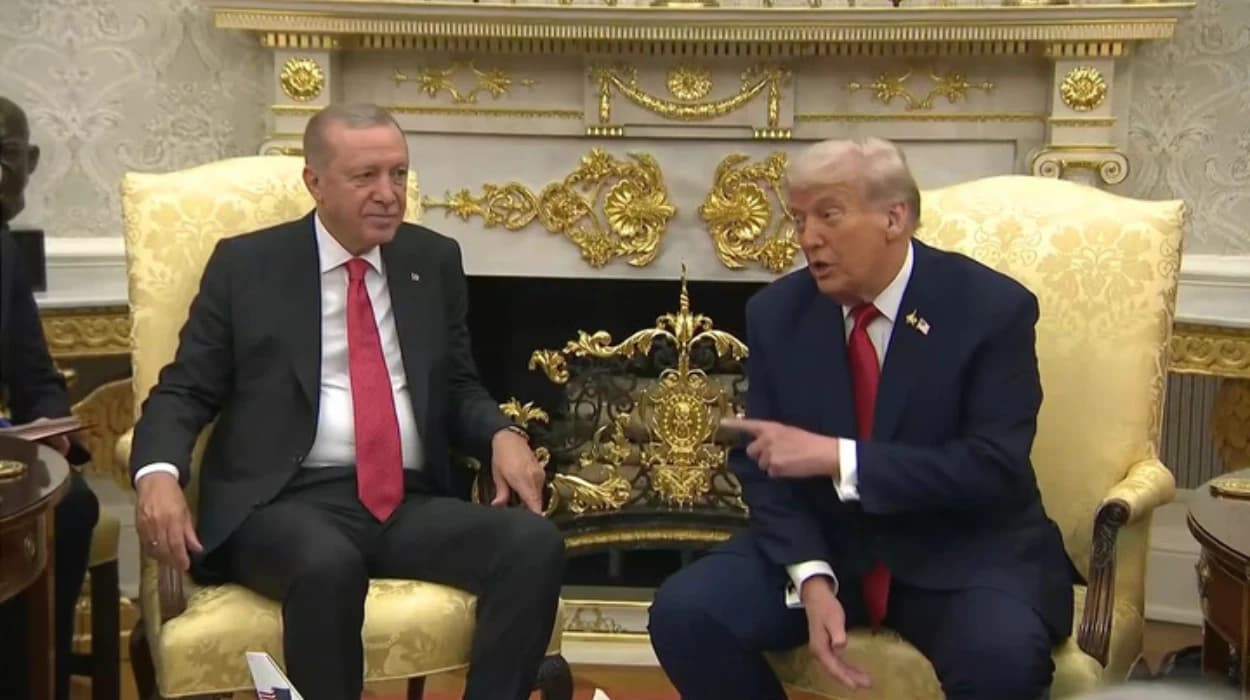Summary
- DOJ sued eight states over refusal to share voter data.
- Lawsuits target California, New York, Michigan, and others.
- DOJ seeks sensitive info: SSNs, driver's license numbers.
In a broad campaign against Democratic-led states, the lawsuits accuse states of unlawfully obstructing the Justice Department's attempts to examine voter data, including addresses, driver's license numbers, and partial Social Security numbers. These lawsuits escalate the Trump administration's efforts to gather voter data.
Under the leadership of Trump friend Harmeet Dhillon, the DOJ's Civil Rights Division has asked at least 24 states for voter registration data since Trump took office. This includes asking at least 22 states for a comprehensive list of all registered voters.
The Justice Department last week filed claims in Oregon and Maine, and on Thursday it filed complaints in California, Michigan, Minnesota, New York, New Hampshire, and Pennsylvania.
“Clean voter rolls are the foundation of free and fair elections,”
Attorney General Pam Bondi said in a statement.
“Every state has a responsibility to ensure that voter registration records are accurate, accessible, and secure — states that don’t fulfill that obligation will see this Department of Justice in court.”
But “not at any single point have they been given clarity how this information will be used,” Michigan Secretary of State Jocelyn Benson told reporters this week.
“Given that this isn’t normal and extremely alarming, they have not been upfront … about what they plan to do with this information,” she said.
“We can surmise the ways in which this can be used or misused to harass, intimidate or remove eligible voters from the rolls … Or create this aura that states are unable to do what is our duty, which is to maintain accuracy of voter rolls.”
The Justice Department is talking about sending sensitive voter roll data to the Department of Homeland Security for use in criminal and immigration investigations, according to a Reuters story earlier this month.
False allegations regarding procedures in place to prevent noncitizens from casting ballots are part of Trump and his followers' irrational insistence that the 2020 presidential election was stolen from him.
Legislation in Congress that might revolutionize the way Americans register to vote is also being fueled by a baseless allegation that millions of noncitizens are casting ballots in federal elections.
Election participation would be more challenging under the Safeguard American Voter Eligibility Act, or SAVE Act, which would require a passport or a birth document that matches one's current legal name when registering to vote.
The president has separately signed an executive order that similarly requires proof of citizenship when registering to vote. It also would require a national mail-in ballot deadline of Election Day.
Noncitizen voting is already illegal and exceedingly rare, and there is no evidence that widespread election fraud has changed election outcomes. Democratic officials and voting rights advocates fear the Trump administration is setting the stage for challenges to election results by building a spurious body of evidence to undermine the outcomes.
“If you’re going to risk the livelihood of your family, livelihood from your job, to participate in an election, I don’t think that’s a priority for anyone here in the United States,”
Nevada Secretary of State Cisco Aguilar told reporters this week. “It doesn’t make sense. It’s illogical.”
The Trump-led gerrymandering arms race to redraw congressional districts in order to give GOP candidates an advantage in the midterm elections coincides with the legal dispute over election administration. On a generic ballot, Democratic candidates are just barely ahead of Republicans, according to early polling.
Before next year's midterm elections, Trump is pressuring state and federal officials to "get rid" of mail-in ballots, which could deprive thousands of voters who depend on mail-in voting of their right to vote.
Trump said he will "lead a movement" and sign an executive order targeting the "completely disproven Mail-In SCAM" on his Truth Social account last month.
According to the U.S. Election Assistance Commission, about one-third of the ballots cast in the 2024 elections were sent in via mail.
How will these lawsuits affect access to voter rolls during 2026 preparations?
States that are suing or resisting the federal government’s demand for additional data from the Department of Justice may delay or refuse to submit the full scope of voter registration data which can slow down the federal government’s efforts for verification, cleaning, and cross-checking of voter rolls across the country in advance of elections.
Many of the states are citing privacy laws as well as state laws prohibiting sharing of sensitive voter information which will lead to ongoing legal challenges and limit the amount of data available at critical periods of election preparation.
The aggressive data demands from the DOJ and lawsuits, if actually filed, deepen political divisions and may lead to states even less willing to cooperate, especially states led by Democrats concerned about voter suppression.

